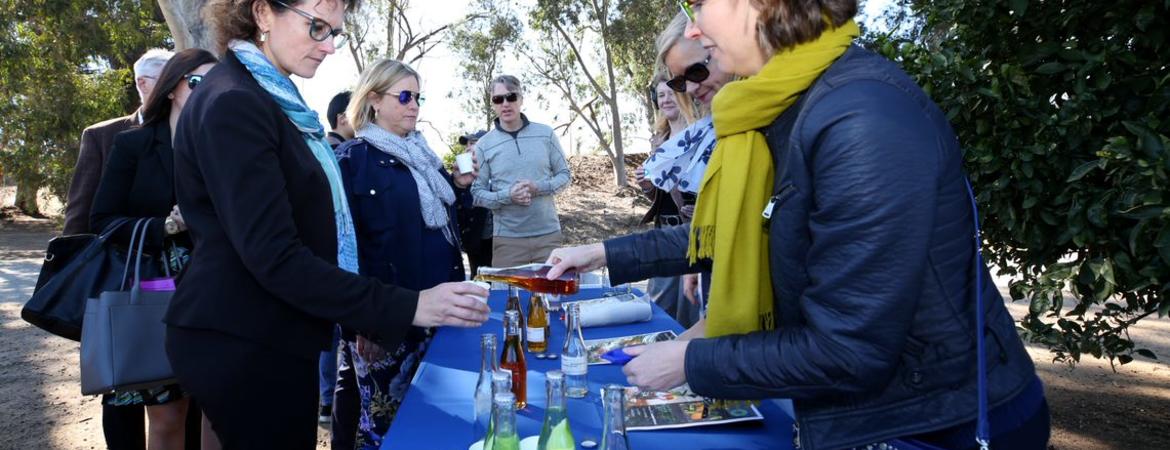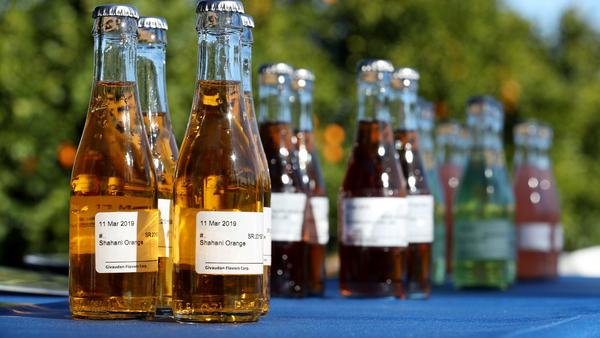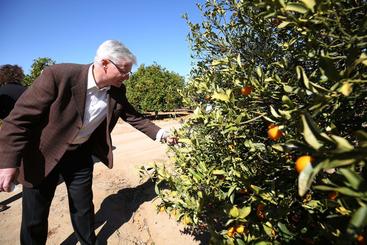
RIVERSIDE, Calif. - The first bite of a tangy orange; a field of fragrant wildflowers; the sweet aroma of roasted hazelnuts. The natural world is filled with tastes and smells that delight our senses and calm our frayed nerves. If only we could package them up and take them home.
For 250 years, Givaudan has been doing just that.
While it might not be a familiar name—Givaudan sells ingredients rather than consumer products—the company’s creations touch the lives of billions of people around the globe every day. The company helps create perfumes from petals, fizzy drinks from citrus, and bubble baths from lavender to name just a few.
Founded in the French Riviera town of Grasse, Givaudan has grown to be the largest flavor and fragrance company in the world—capturing about 25 percent of its industry’s global market share. Now headquartered in Geneva, Switzerland, the company employs more than 13,500 people in 148 locations.
Givaudan’s creations are divided into two categories, depending on whether they will be smelled or tasted. The Fragrance Division supplies companies that make perfumes and personal, home and laundry care products, while the slightly larger Flavors Division supplies companies that produce drinks, savory goods, snacks, sweets, and dairy. The company’s heritage lies in natural ingredients, but its innovation includes synthetic products, including some that mimic naturals and some that are unique—the popular scent of “clean laundry” among them.
Jeff Peppet, a spokesperson for Givaudan’s Flavor Division based in Cincinnati, Ohio, said demand from health-conscious consumers is pushing the company back toward its roots in natural ingredients.
“Today’s consumers in many parts of the world are seeking out natural, familiar ingredients derived from herbs, spices, fruits, vegetable and other edibles,” Peppet said.
Peppet said Givaudan takes a responsible approach to sourcing these raw ingredients, many of which come from economically disadvantaged nations. The largest producer of vanilla, for example, is the African island nation of Madagascar. There, a team of Givaudan employees works with thousands of smallholder vanilla farmers to sustainably produce the popular flavoring. At the same time, the Givaudan Foundation, created by the company in 2013 as an independent non-profit organization, runs a rural development program to address the wider community needs of food security, health, and education.
The company’s success in Madagascar rests on the relationships that have been established over many years with suppliers and among the producer communities, Peppet said.
The Givaudan teams are present in Madagascar throughout the year, working closely with the producers to manage the supply, to promote traceability of the beans and the adoption of good farming practices for certification.
While Givaudan collaborates with various companies and academic institutions, the long-standing partnership with UC Riverside and its Citrus Variety Collection (CVC) is unique, Peppet said. Givaudan’s latest gift to the university will support the construction of screen-houses to protect the university’s collection of more than 1,000 varieties of citrus and related fruits. The collection is currently under threat from Huanglongbing (HLB, also known as Citrus Greening Disease), an insect-borne bacteria that has devastated the global citrus industry.
“Dozens of Givaudan experts have visited the Citrus Variety Collection to get inspiration for new flavors,” Peppet said. “As a company, we are committed to preserving this exceptional collection so that it can continue to support research benefitting the citrus industry.”





